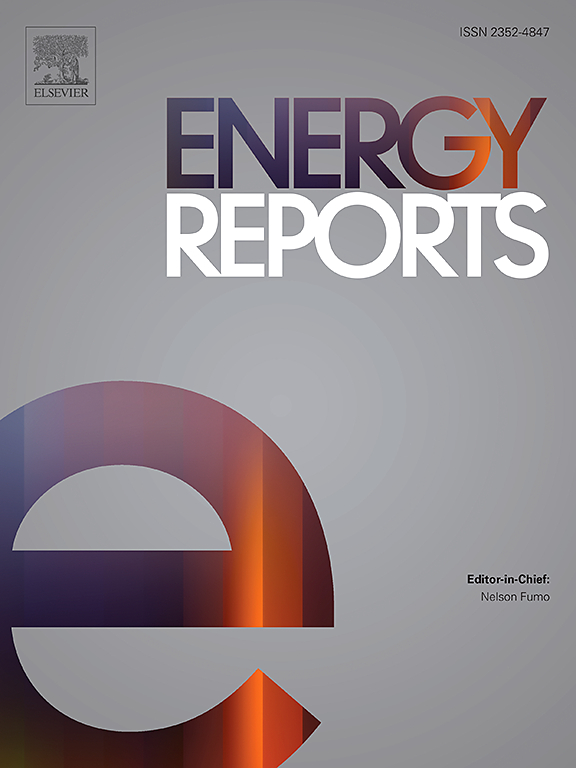整合技术评估和利益相关者参与:基于案例的方法探索热可再生能源社区
IF 5.1
3区 工程技术
Q2 ENERGY & FUELS
引用次数: 0
摘要
本文通过欧盟地平线2020项目BECoop研究了以生物质为基础的区域供热网络为中心的新型热可再生能源社区(TREC)模型的初步可行性。鉴于目前的监管空白和与电力供暖相比,trec的实施有限,该研究旨在开发一种参与式方法,共同设计意大利北部瓦尔泰利纳山区的生物质燃料社区供暖系统。研究方法涉及三个关键阶段:试点地区选择、社区共同创造过程和技术经济预可行性研究。最初,试点项目的选择是基于生物质的可用性、气候条件、政治支持和天然气网络的缺乏。随后,包括市政当局、市民和生物质供应商在内的当地利益相关者通过有针对性的研讨会、调查和访谈积极参与,共同确定TREC的共同愿景和路线图。预可行性评估结合了来自公共区域能源数据库、GIS工具和特定地点调查的数据,以估计当地的热需求、生物量可用性和系统规模。提出了结合有机朗肯循环(ORC)的生物质热电联产系统,突出了巨大的环境效益,节省了约70% %的一次能源和排放,但也面临着重大的经济和治理挑战。研究结果强调了明确的监管框架、创新的融资计划和利益相关者的全面参与对成功实施trec的必要性。这种参与式和综合的方法代表了一种可复制的方法,以促进当地生物能源解决方案,促进公民赋权和可持续的社区复原力。本文章由计算机程序翻译,如有差异,请以英文原文为准。
Integrating technical assessment and stakeholder engagement: A case-based approach to explore thermal renewable energy communities
This paper investigates the preliminary feasibility of a novel Thermal Renewable Energy Community (TREC) model centred on biomass-based district heating networks, through the EU Horizon 2020 project BECoop. Given the current regulatory gaps and limited implementation of TRECs compared to electrical ones, the study aimed to develop a participatory approach to co-design a biomass-fueled community heating system in the mountain area of Valtellina, northern Italy. The research methodology involved three key phases: pilot area selection, community co-creation processes, and a technical-economic pre-feasibility study. Initially, the pilot was selected based on biomass availability, climatic conditions, political support, and absence of natural gas networks. Subsequently, local stakeholders, including municipalities, citizens, and biomass suppliers were actively engaged through targeted workshops, surveys, and interviews, collaboratively defining a shared vision and roadmap for the TREC. The pre-feasibility assessment combined data from public regional energy databases, GIS tools and site-specific surveys to estimate local heat demand, biomass availability, and system sizing. A biomass Combined Heat and Power system coupled with an Organic Rankine Cycle (ORC) was proposed, highlighting substantial environmental benefits, around 70 % savings in primary energy and emissions, but also significant economic and governance challenges. Findings underline the necessity of clear regulatory frameworks, innovative financing schemes, and comprehensive stakeholder engagement to successfully implement TRECs. This participatory and integrated approach represents a replicable methodology to foster local bioenergy solutions, promoting citizen empowerment and sustainable community resilience.
求助全文
通过发布文献求助,成功后即可免费获取论文全文。
去求助
来源期刊

Energy Reports
Energy-General Energy
CiteScore
8.20
自引率
13.50%
发文量
2608
审稿时长
38 days
期刊介绍:
Energy Reports is a new online multidisciplinary open access journal which focuses on publishing new research in the area of Energy with a rapid review and publication time. Energy Reports will be open to direct submissions and also to submissions from other Elsevier Energy journals, whose Editors have determined that Energy Reports would be a better fit.
 求助内容:
求助内容: 应助结果提醒方式:
应助结果提醒方式:


